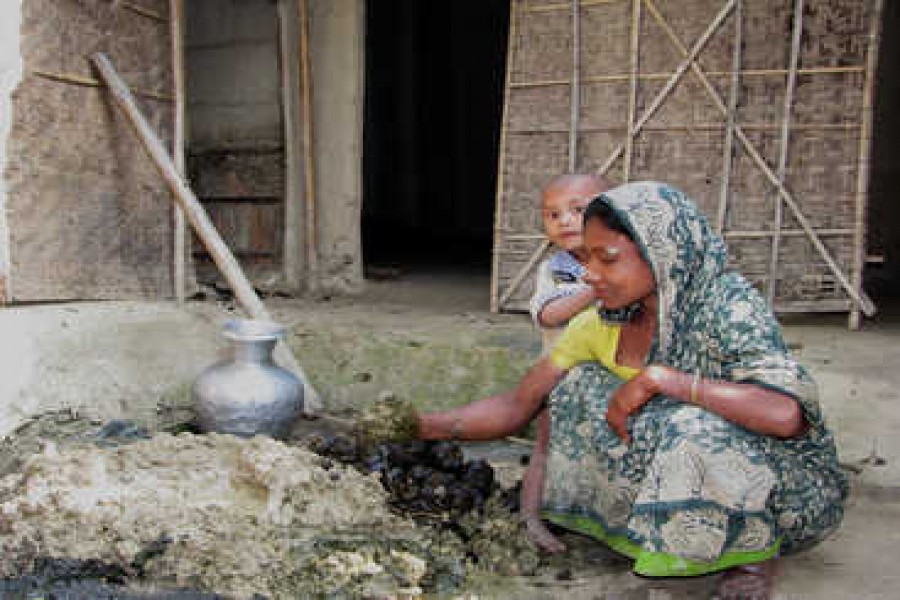
Published :
Updated :

Common sense is now very uncommon. So is the case with women's unpaid work. Though their contributions are obvious and palpable they sadly await recognition in a tangible form.
The UNDP, the World Bank, Women's rights platforms, think tanks and advocacy groups have been harping on the agenda with routine regularity. This is happening both at the global and national levels with the result that there's no dearth of sensitisation about the issue. Only action is lacking on the part of countries being apparently unsure about the methodology of computing women's unpaid work into the national accounting system.
The answer lies in what is known as satellite accounts whereby India, Mexico and South Africa estimate women's household work in the economy. "Satellite accounts provide a framework linked to the central accounts enabling attention to be focused on a certain field or aspect of economic or social life in the context of national accounts." Common examples are satellite accounts for the environment, or tourism or unpaid housework.
It is a term developed by the UN to measure the size of economic sectors that are 'not designed as industries in the national accounts. 'Non-market products like defence and education services provided by the government may belong to this category.
The latest to add his voice to the cause of recognizing and estimating women's unpaid domestic work in the GDP is Selim Jahan, director of the Human Development Report Office of the UNDP.
Where the matter acquires stupendous relevance is that it is intertwined with gender discrimination and human rights issues on the one hand and human resource development on the other.
'Women do 80 per cent of the agriculture work but they own less than 10 per cent of land.' Of the total time spent on non-market work women contribute 89 per cent while men a miniscule 11 per cent. Men have 12 per cent more leisure than women.
The devaluation of women's productive input into the economy 'weakens women's position and creates defective policy'. Unless women's non-market work is monetised and added to the GDP, miscalculations will continue to occur.
Thankfully, substantial amount of research material is available to enable us to make a preliminary quantitative and qualitative appraisals of women's contributions to economy ,social good and welfare in general. Tania Haque (1989-90) of the department of women and gender studies at Dhaka University put the value of women's work at TK 638 billion. A vast majority of women work 16 hours a day and at that rate they put in about 771.2 million hours a year. The output is worth between US$ 69.81 and US$ 91 billion. And if it were added to the GDP, its size would have doubled.
The fact of the matter is that tangible recognition of their work including a swathe of care-giving and child-rearing activities they perform can be an overarching gesture of goodwill to our daughters, siblings, spouses or mothers. Whereas the status of women is coiled up in all sorts of discriminatory webs, the way to untangle their entrenched situation is to elevate their position by valuing women's contribution to the economy .
The layers of gender discriminations may take time to wither away; but in accelerating the process, monetisation of women's household ,economic ,caring and child-rearing activities can work as a powerful catalyst. It can act as a silver bullet for the culture and mindset changes that we have been looking forward to.
safarihi43@gmail.com


 For all latest news, follow The Financial Express Google News channel.
For all latest news, follow The Financial Express Google News channel.